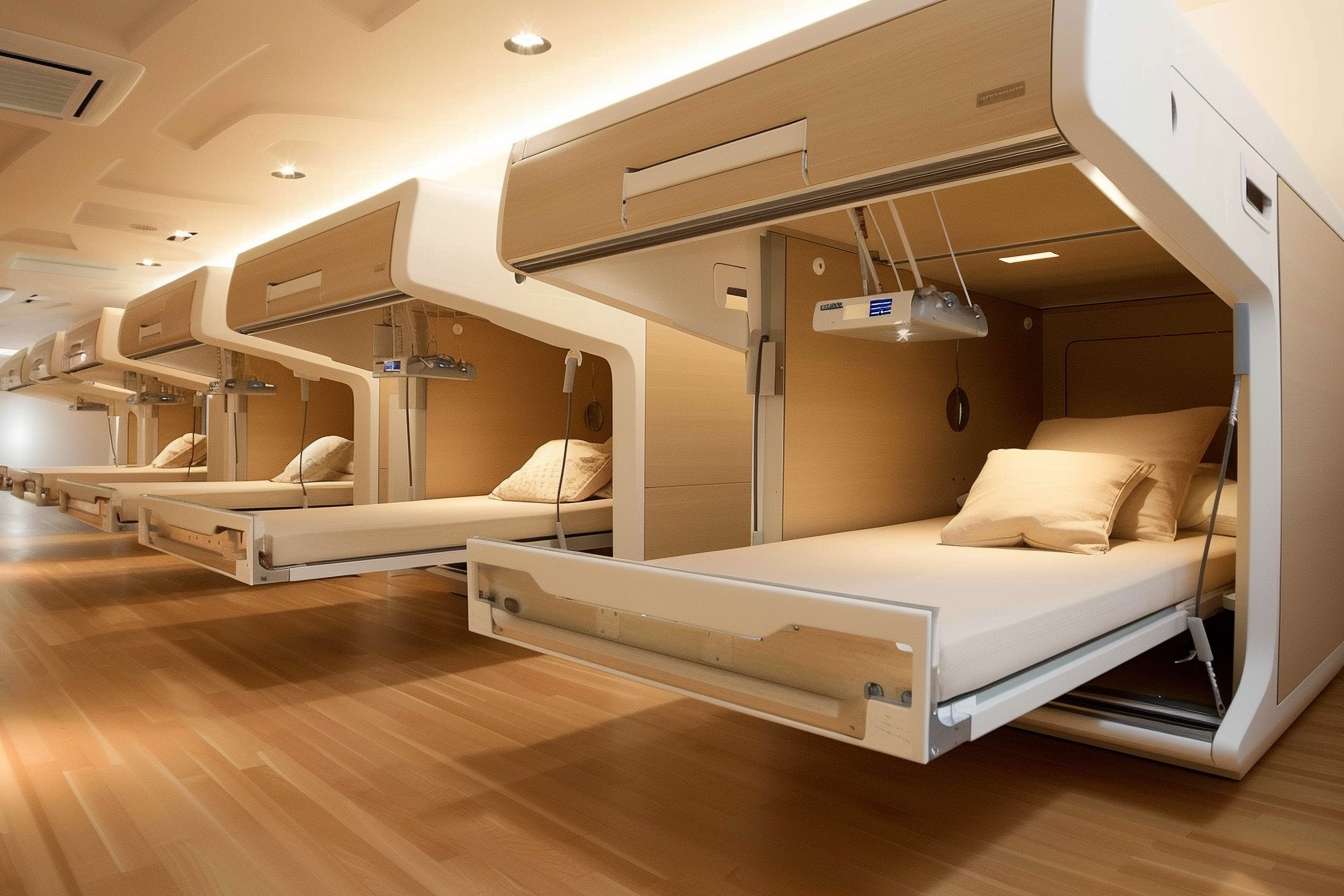Uncovering the Hidden Allure of Capsule Hotels
The compact confines of capsule hotels are redefining the way we experience urban accommodations. These innovative spaces, born from necessity in bustling Japanese cities, have evolved into a global phenomenon that blends minimalism, technology, and unique design. As travelers seek novel experiences and efficient lodging options, capsule hotels are emerging as a captivating alternative to traditional hotels, offering a blend of privacy, affordability, and futuristic charm.

The Modern Capsule Hotel Experience
Today’s capsule hotels are a far cry from their utilitarian predecessors. Many now feature sleek, pod-like units equipped with high-tech amenities such as built-in entertainment systems, climate control, and mood lighting. Some even offer themed capsules, from sci-fi inspired pods to nature-themed cocoons, catering to diverse tastes and preferences. The communal areas in these hotels often rival those of boutique establishments, with co-working spaces, lounges, and even on-site cafes and bars.
The Psychology Behind Small Spaces
The appeal of capsule hotels taps into a fascinating aspect of human psychology. While the idea of sleeping in a small pod might seem claustrophobic to some, many guests report feeling cozy and secure. This sensation is rooted in the concept of the “nest effect,” where enclosed spaces can trigger feelings of safety and comfort. For urban travelers, capsule hotels offer a retreat from the sensory overload of city life, providing a cocoon-like environment that promotes relaxation and restful sleep.
Capsule Hotels Around the World
While Japan remains the epicenter of capsule hotel culture, the concept has spread globally, adapting to local tastes and architectural styles. In Europe, capsule hotels often blend modern design with historical buildings, creating a unique juxtaposition of old and new. In Southeast Asia, capsule hotels have embraced tropical aesthetics, incorporating natural materials and open-air communal spaces. Even airports are getting in on the trend, with transit capsule hotels offering convenient nap options for layover passengers.
The Future of Compact Accommodations
As urban populations grow and space becomes increasingly precious, the capsule hotel concept is inspiring new forms of compact living. From micro-apartments to modular homes, the principles of efficient space utilization pioneered by capsule hotels are influencing architecture and urban planning. In the hospitality industry, we’re seeing the emergence of hybrid models that combine capsule-style sleeping quarters with co-living amenities, blurring the lines between short-term stays and long-term residences.
Insider Tips for Capsule Hotel Stays
-
Book a top-level capsule for more headroom and a sense of openness
-
Bring earplugs, as sound can sometimes travel between capsules
-
Take advantage of luggage storage facilities to maximize your capsule space
-
Explore the communal areas – they’re often where the hotel’s unique character shines
-
Check if the hotel offers gender-specific floors for added comfort
-
Look for capsule hotels with 24-hour access if you plan on late nights out
The rise of capsule hotels reflects a shift in travel preferences towards experiences that are both efficient and memorable. As these innovative accommodations continue to evolve, they offer a glimpse into the future of urban hospitality – one where smart design and technology come together to create spaces that are small in size but big on impact. Whether you’re a curious traveler or a design enthusiast, a stay in a capsule hotel promises a unique adventure in the heart of the city.






